e
Moscow-on-Thames: Soviet-born billionaires and their ties to UK's political elite
How party donations, sports teams and lavish London residences have granted access to highest echelons of public life
B
usinesspeople born in the Soviet Union play a significant role in British business and politics. Some have given money to political parties. Others have made substantial investments in media and industry. All have homes in London, with several visiting regularly from Moscow.
Following a week in which Russia and its links to the UK have been in the news, the Guardian has looked into the impact of Soviet-born men and women on recent UK public life.
Lobbying and the media
Alexander Lebedev bought the loss-making Evening Standard newspaper in 2009, installing his son Evgeny as proprietor. Lebedev later acquired the Independent and launched a successful spinoff version, the i. The Standard office is around the corner from where Lebedev worked in the 1980s as an undercover spy based at the Soviet embassy.
As he recounts in his memoir, Hunt the Banker, the KGB approached Lebedev in his final year at university in Moscow. He learned espionage at the Red Banner Institute and joined the KGB’s prestigious first directorate, specialising in foreign intelligence work. After the USSR’s collapse, Lebedev went into banking and the media.
Lebedev funded Russia’s independent Novaya Gazeta newspaper. In 2016, however, he wrote a column in the Evening Standard defending Vladimir Putin after the Russian president’s close friend Sergei Roldugin appeared in the Panama Papers. Lebedev supported Russia’s takeover of Crimea and held a conference there in 2017 to counter what he said was western media “bias”. Russia’s foreign ministry spokesperson Maria Zakharova went to his Moscow book launch.
In recent years, Lebedev has come under scrutiny over his close personal ties with Boris Johnson.
In spring 2018, Johnson flew to the Lebedevs’ villa in Perugia, Italy. The then foreign secretary left his security detail behind and was spotted at the airport on his way home, dishevelled and hungover. Johnson attended Lebedev’s 60th birthday party the day after winning December’s general election. David Cameron and then Evening Standard editor George Osborne were guests too.
Meanwhile, Lebedev’s billionaire Moscow contemporary Alexander Mamut bought the bookshop chain Waterstones in 2011 for £53.5m. Mamut introduced a Russian-language section to its store in Piccadilly Circus, central London. His then teenage son was educated at a leading British private school.
Mamut owns extensive media assets in Russia, including the news website Lenta.ru. In 2014, he fired its editor, Galina Timchenko, after she published an interview with a Ukrainian nationalist. Mamut replaced her with a pro-Kremlin journalist. In 2018, he sold a majority stake in Waterstones to a hedge fund.
The PR executive and former Ulster Unionist MP David Burnside has introduced several prominent Kremlin figures to senior Conservatives. His communications firm, New Century Media, founded a Positive Russia foundation to improve Moscow’s image in the UK. One of Burnside’s employees is Alex Nekrassov, whose late father Alexander was a Kremlin adviser and hardline Putin apologist.
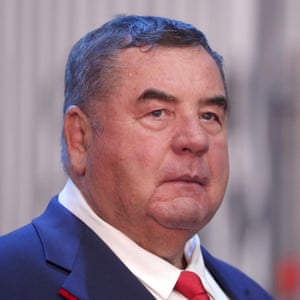
In 2012, Burnside took a Russian embassy diplomat, Sergei Nalobin, to a Conservative party fundraising dinner. Nalobin, the son of a senior officer in the FSB, the successor to the KGB, founded the Conservative Friends of Russia, a parliamentary group. Its 2012 launch party took place in the Russian ambassador’s Kensington garden.
John Whittingdale MP and Carrie Symonds, then a young Tory party worker and now Johnson’s fiancee, were among the guests. Raffle prizes included a biography of Putin and bottles of vodka.
The following year, Burnside invited Vasily Shestakov, an influential MP in Russia’s Duma, to the same Tory fundraising dinner. He introduced him to the prime minister, David Cameron. Shestakov is an old friend of Putin’s and with him co-authored several books, including Learn Judo With Vladimir Putin and Judo: History, Theory, Practice.
Politics
The Conservatives have received more than £3m from wealthy Soviet-born donors – all of whom can legally give money to the party as British citizens. They include Alexander Temerko, a former Russian junior defence minister, and Lubov Chernukhin, a financier whose husband Vladimir served in Putin’s cabinet as deputy finance minister.
Temerko has funded the constituency associations of several leading Tory MPs, including the business secretary, Alok Sharma, and Mark Pritchard. Pritchard sits on parliament’s intelligence and security committee (ISC), which on Tuesday published its long-awaited Russia report. The Scottish National party has called on Pritchard to resign from the committee or give the money back.
In an interview with the Guardian, Temerko said he was “no friend” of Putin’s, whom he called an “enemy of democracy”. He said he had zero intention of going to Russia. Temerko has given more than £1.3m to the Conservative party. He would not be drawn on whether the Kremlin had interfered in the EU referendum vote in support of Leave, but said that he opposed Brexit.
An investigation by Reuters, based on conversations with Temerko, alleges that he supported Johnson’s campaign to take Britain out of the EU – at least initially. It said the industrialist had funded some of Johnson’s key allies in parliament, including James Wharton, who ran Johnson’s successful prime ministerial campaign. Johnson and Temerko were close, sharing bottles of wine and sometimes calling each other “Sasha”, it added.
In contrast to Temerko, Chernukhin keeps a low public profile. The former banker turns down interview requests and has not publicly explained why she has given the Conservative party more than £1.7m. Born in the Soviet Union, Chernukhin is the biggest female donor in British political history and one of the Tories’ most important cash supporters.
Her largesse seems directed at whoever is the Conservative leader. In 2014, she paid £160,000 at a Tory fundraiser to play tennis with Cameron and Johnson, then the PM and London mayor. She paid £135,000 in April 2019 for a dinner at the luxury Goring hotel with Theresa May, also then the PM, and several female cabinet members.
Other donations have flowed to Brandon Lewis, the former Tory party chairman. He has received £24,500, according to Electoral Commission filings. He defended the donations in media interviews on Thursday. Cash has also gone to Theresa Villiers, who sits on the ISC. In February, Chernukhin spent £45,000 on another game of tennis with Johnson and Ben Elliot, the Tories’ co-chair. The SNP is calling on Villiers to return the money.
Chernukhin’s husband served as a Russian minister in 2000, during Putin’s first presidential term. He was chairman of Vnesheconombank (VEB), a bank and state corporation with reported close ties to the Kremlin security establishment. He later left Moscow and became a British citizen in 2011. The couple have an £8m London mansion, owned by an offshore trust, a jet and two yachts.
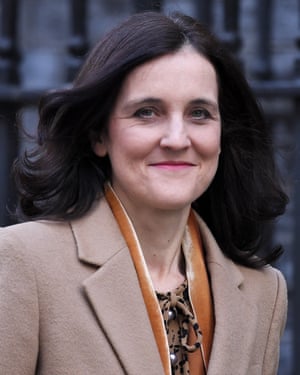
Another prominent figure is Andrei Borodin, the former president of the Bank of Moscow. In 2013, Borodin attended the Conservatives’ summer ball with his wife Tatiana Korsakova, a model, four months after receiving political asylum. He spent £40,000 on a portrait of Margaret Thatcher.
The payment was made by Henley Concierge, a firm registered to a cottage on Borodin’s £120m country estate near Henley-on-Thames, Oxfordshire. Borodin said he did not discuss party policy at the event, nor make a donation. Russian authorities have accused him of a massive fraud. Borodin denies this and says he’s the victim of a politically motivated witch-hunt.
Business and property
Super-wealthy businessmen from former Soviet countries also control a dizzying array of UK assets spanning football clubs, oil and gas and multimillion-pound mansions. Their financial clout affords members of this select group considerable influence and access to Britain’s professional and ruling classes.
Perhaps the most high-profile London-based oligarch, thanks to his £140m purchase of Chelsea Football Club in 2003, is Roman Abramovich. The Israeli-Russian billionaire has limited UK business interests outside football, but his extensive property portfolio includes a 15-bedroom mansion in London’s prestigious Kensington Palace Gardens, bought for £90m in 2011.
The Chelsea owner’s wealth is derived partly from proceeds from the controversial privatisation of the oil giant Sibneft after the fall of the Soviet Union. When Sibneft needed an international communications chief it turned to Greg Barker, who would go on to become Conservative energy minister under David Cameron.
Lord Barker of Battle, as he has been known since his elevation to the House of Lords, has also worked for another Russian businessman with the ear of Britain’s powerful elite, Oleg Deripaska. Deripaska attracted public attention in 2008 over claims that he discussed making a donation to the Tories with George Osborne, during a meeting held aboard his yacht in the Mediterranean.
In 2017, Deripaska listed his En+ energy and metals group on the London Stock Exchange and turned to Lord Barker to serve as its chairman. The Tory peer received a bonus of $4m (£3.14m) after helping Deripaska get the company removed from a list of firms hit by US sanctions.
Barker and Deripaska are not the only peer and oligarch double-act on the UK business scene. The legendary oil dealmaker and former BP boss Lord Browne is executive chair of billionaire Mikhaeil Fridman’s Letter One Energy group, which has a one-third stake in the oil and gas company Wintershall DEA.
Fridman and Browne enjoy a longstanding business relationship that includes the foundation of TNK-BP, a joint venture involving British oil supermajor BP and a group of three billionaires, including Fridman, under the banner AAR. The relationship between BP and AAR often proved acrimonious and TNK-BP boss Bob Dudley was at one stage forced to flee the country fearing for his safety. After a power struggle, AAR eventually sold its half in the venture to Russian state-owned oil giant Rosneft. That deal left BP with a near-20% stake in the Kremlin-backed company, making cordial Russian relations vital for BP. Rival Shell also has interests in Russia via the huge Sakhalin-2 offshore gas project.
One of the other billionaires behind AAR, Sir Leonard (Len) Blavatnik, also wields significant influence in the UK. Blavatnik was born in Odessa, in Soviet Ukraine, but has renounced Russian citizenship and is a dual US-UK citizen. Blavatnik has amassed a vast business empire, including Warner Music. He endowed Oxford University by spending £75m to found the Blavatnik School of Government. He also sponsors the Baillie Gifford literature prize and is the main benefactor of multiple London museums and art galleries. Like Abramovich, he owns a mansion in Kensington Palace Gardens, a property that has been valued at up to £200m.
But that pales in comparison to the estimated price tag on Witanhurst, often referred to as Britain’s most expensive home. The mansion in London’s upmarket Highgate was bought for £50m in 2008 by the family of the Russian fertiliser baron Andrey Guryev, through an offshore company called Safran Holdings, located in the tax haven of the British Virgin Islands. It has been valued at more than £300m after extensive refurbishment.
A few miles across north London lies Arsenal Football Club, in which the Uzbek-born Russian metals, mining and publishing billionaire Alisher Usmanov was a long-time shareholder – even at one time considering a full takeover. Ultimately he sold his shares for £550m in 2018 to the US sports tycoon Stan Kroenke.
One of London’s most successful Russian businessmen is Andrey Andreev. He has made a fortune of close to £1bn by founding dating apps, including the female-focused Bumble and Badoo.
• Luke Harding’s latest book Shadow State: Murder, Mayhem and Russia’s Remaking of the West (Guardian Faber) is available from the Guardian Bookshop.
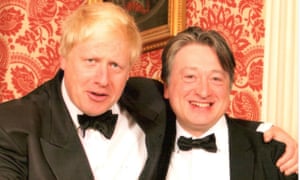
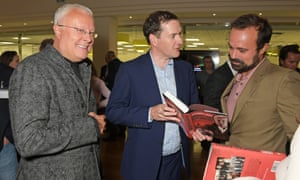
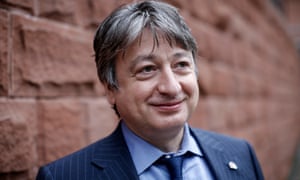
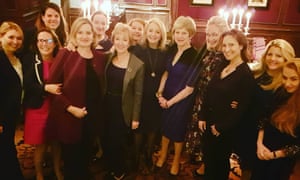
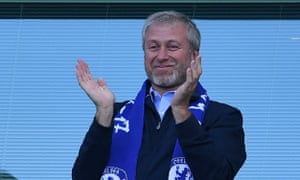
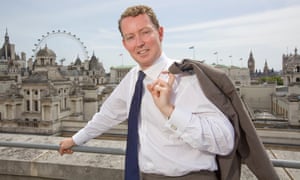
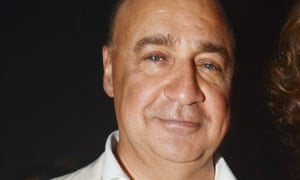
Geen opmerkingen:
Een reactie posten
Opmerking: Alleen leden van deze blog kunnen een reactie posten.